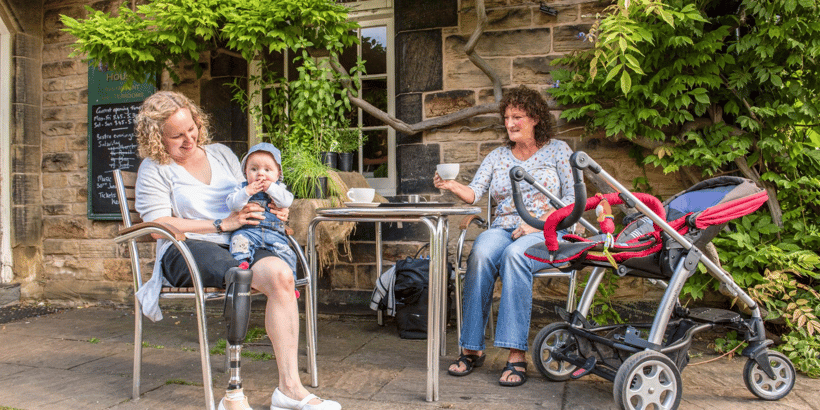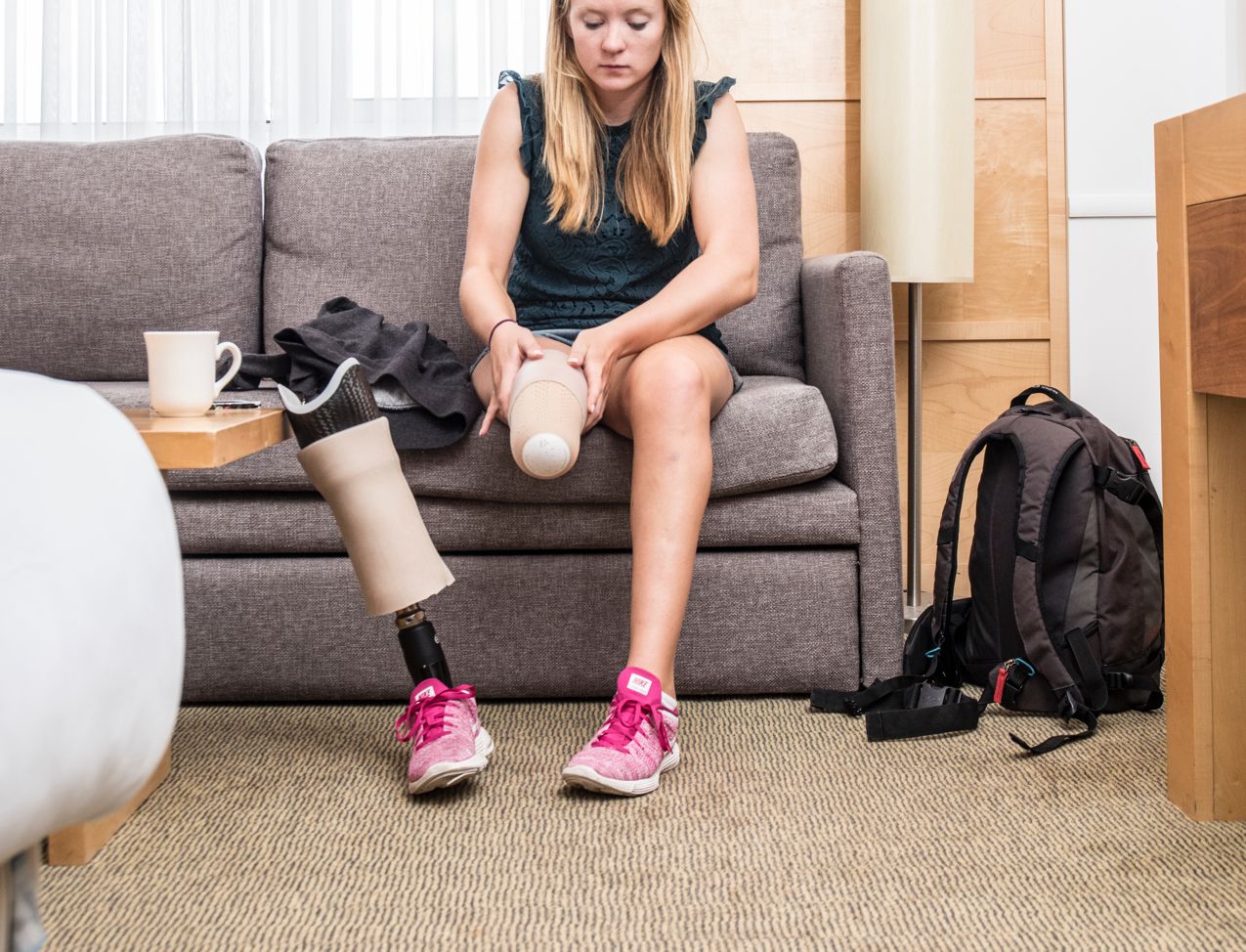What Happens After Receiving Your Prosthetic?
As a patient, you will want to talk to your prosthetist about your concerns and your plans for moving forward after your surgery. You will want to stay in close contact with your physician and rehabilitation team before and after your surgery.
Some patients see their prosthetist a few times a week if they are a new amputee, or if their bodies change in a way that doesn't allow them to fit into their socket (think weight gain, loss, or discomfort), and of course malfunctions.
A socket may no longer fit perfectly as the amputee becomes more active and adjusts, which can affect the amputee's safety and comfort, so a new correctly fitting socket must be fabricated.
We have a variety of resources and information on topics related to your new prosthetic:
Home Exercises
Maintaining your balance, muscle strength, flexibility and range of motion is an important aspect of maintaining a healthy and active lifestyle as an amputee.
Amputee Coalition has a useful page listing all the exercises you could try. As always please be sure to check with your physician or physical therapist before beginning any of these exercises. OPAF and the First Clinics is an additional resource for tips on home exercises and wellbeing.
Home Exercises for Lower Limb Amputees (Tim Petrie – Sports Medicine Physical Therapist and a certified Orthopaedic Specialist)
Your Emotional Wellbeing
For many people, this will be a scary situation that severely affects your mental wellbeing and while it is important to be informed of the situation, there are some things you can do to manage at this time.
The Mental Health Foundation provides some helpful tips to help you, your friends and family can do to look after your mental health.
Hygiene
As well as being essential for your mobility, caring for the skin on your residual limb is particularly important at this time in order to reduce the risk of infection.
Establishing a regular care routine and understanding how to identify some of the early warning signs will help prevent you from being unable to use your prosthesis for an extended period of time.
We have an advice page giving you some tips on caring for your residual limb that you may find useful.
Useful Resources
There are many campaign groups, support groups and charities for the amputee community, at both a national and local level.
A network of patient advocacy groups is available throughout North America to provide you with guidance, educational, financial and emotional support and job skills training.
Please let us know if you’d like your support group or organisation listed here.
Check out "One Arm Between Us" on YouTube to watch a show created by Cameron Clapp, an amputee with a passion to help others, while he shares his support and knowledge with others facing similar challenges.
The Blatchford Community
For over 130 years Blatchford has designed and produced some of the world's most advanced artificial limbs and mobility solutions. Learn more about resources available to help you and/or the amputee in your life!


